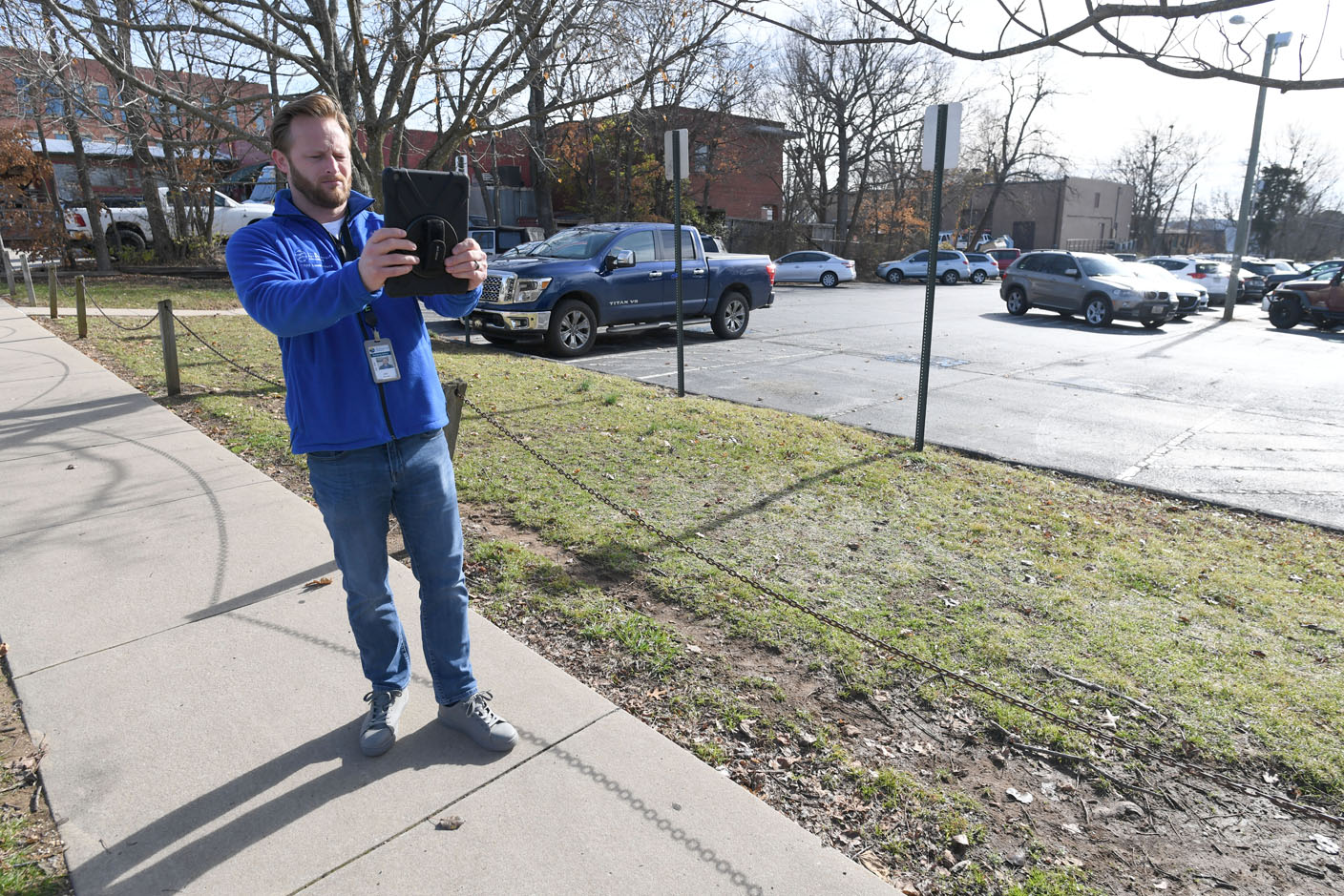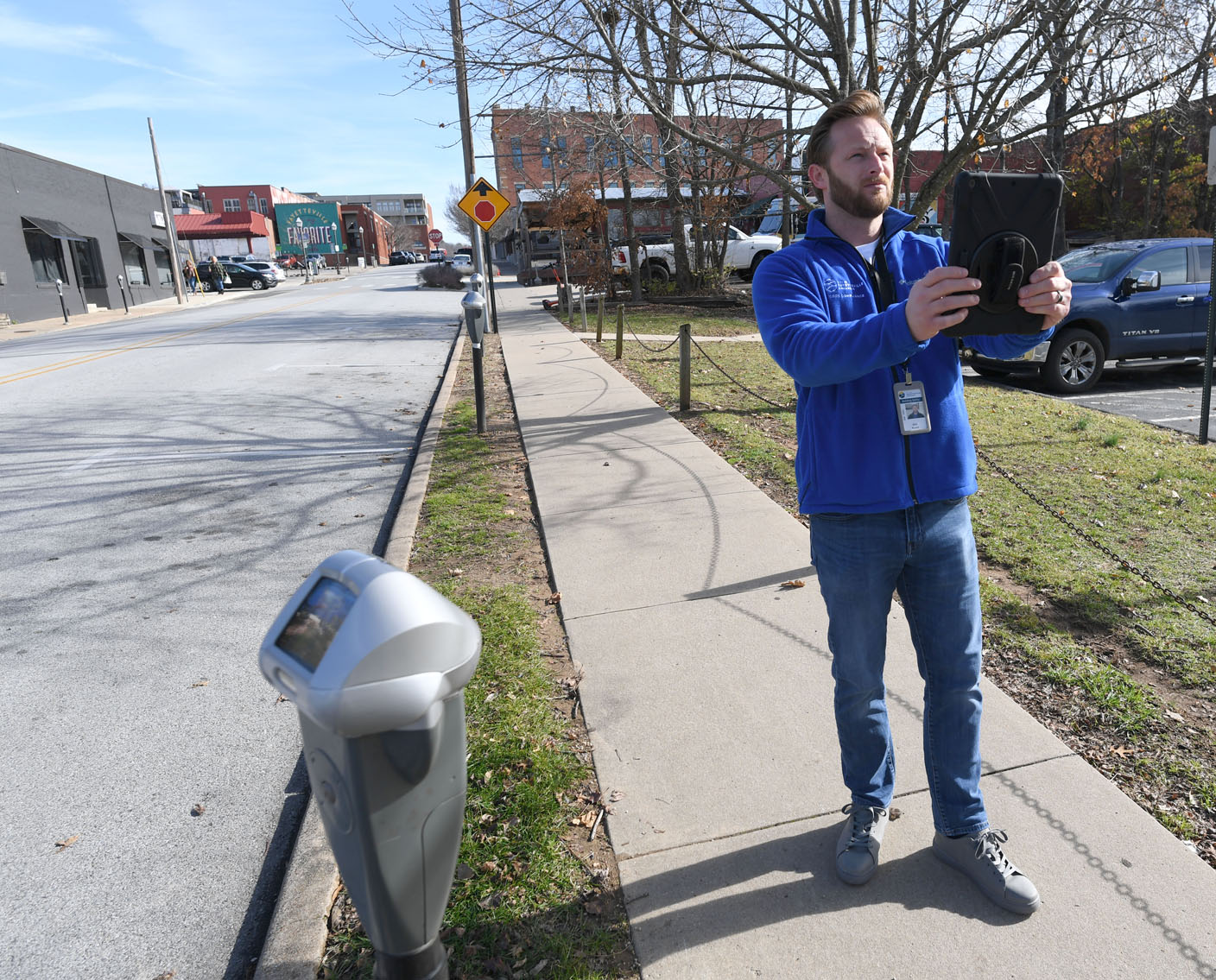How much time, money and staffing a city dedicates to regulating certain issues reflects that community's values, municipal planners and experts agree.
Resources are limited, leaving city leaders to choose between taking action to protect the public's health, safety and welfare and being good stewards of taxpayer money.
It's a choice cities are facing more often as Northwest Arkansas' population rises along with the cost of doing business.
Discussion of an ordinance regulating short-term rentals in Fayetteville has prompted City Council debate about what measures the city is capable of enforcing. Council members are looking at changes to the city's short-term rentals ordinance, adopted in April 2021.
Short-term rentals are residences with tenants staying fewer than 30 days at a time. Guests book their stays on websites such as Airbnb and VRBO.
The city is considering hiring a third-party company to enforce its short-term rental rules.
The idea would be that fees the city charges for building inspections, permits and business licenses would cover the cost to hire the company, Development Services Director Jonathan Curth said. The city has a code compliance division with four officers who can respond to common complaints associated with the rentals such as over-occupancy or trash accumulation, but only during business hours, he said.
Going out and regularly checking up on short-term rentals and finding ones that haven't registered with the city is not feasible with current staffing capacity, Curth said. The council recently added 45 full-time equivalent positions across several departments, but that was mostly to catch up with current demand, he said.
In other words, population growth is outpacing personnel, so the city has to be selective with any proactive enforcement of ordinances, Curth said. As a result, the city has a lot of codes it enforces only after a complaint is received to have some kind of mechanism to deal with issues, he said.
"Cities up and down the corridor are experiencing some of the pains of larger municipalities, like homelessness, traffic congestion and development trends, but with the resources of smaller cities," Curth said. "Despite being the second-largest city in Arkansas, Fayetteville is still barely flirting with 100,000 residents."
Short-term rentals have become an ongoing talking point in Fayetteville because an estimated 700 may exist in the city, primarily in desirable locations downtown, while the city contends with housing affordability and availability issues for long-term residents.
COMMUNITY VALUES
Springdale had a problem with graffiti a decade ago. It adopted an abatement program in 2010 because of a proliferation of gang-related messaging sprayed on private property, City Attorney Ernest Cate said. The city has a director for the program and tries to make it easy for residents to report graffiti and have the city come remove it by providing a page on its website with the necessary contact information, he said.
Springdale generally tries to only adopt ordinances it knows it can enforce, Cate said. The City Council has discussed a number of issues over the past 25 years or so, but didn't adopt an ordinance because enforcement would be too difficult, he said.
An example he gave was an ordinance that would have required people to immediately clean up after their dog defecates in someone else's yard.
"The city is all for that in concept, but it would be very difficult to enforce," he said.
Last week, graffiti abatement became a topic in Fayetteville. Council Member Teresa Turk sponsored a measure that would largely mimic Springdale's program. Other council members had questions about which city staff members would enter private property and clean up graffiti and how the city would pay for the labor and materials. The matter was held until the council's Jan. 3 meeting so it could be discussed further with the city's Arts Council.
Ordinances with complaint-driven enforcement still have value to a community, said Mark Kinion, Fayetteville City Council member for the city's downtown Ward 2. Having the rules on the books at the very least sends a message to residents about what kind of behavior is expected, he said.
For example, in Fayetteville no more than three unrelated people can live in a single-family household. The city doesn't knock on doors to see who's living there, but if an issue arises, the city can deal with it, Kinion said.
Kinion said he felt having a complaint-based system in that instance actually serves residents better than if the city tried to strictly enforce occupancy limits. Kinion lives in the Wilson Park neighborhood near the University of Arkansas, Fayetteville, campus. A number of the houses there have students living in them.
One of those houses may technically have more occupants than is allowed under city rules, but if they're good neighbors, other residents in the neighborhood aren't likely to call the city to complain about them, Kinion said. However, if behavior gets out of hand to the point of disturbing a neighborhood, a resident can call and have the city intervene, he said.
In that case, the enforcement power is in neighbors' hands, Kinion said. City Council members also need to stay mindful of the workload it gives staff, he said.
BALANCING ACT
A sliding scale exists with how active a city wants to get when enforcing nuisance-type ordinances, or regulations outside the scope of police oversight, said Jim von Tungeln, staff planning consultant for the Arkansas Municipal League. Examples can include residential occupancy limits, overgrown lawns or trees, graffiti, short-term rentals, keeping animals, stalled vehicles and zoning code violations.
Less active methods are less expensive, but also less effective. More proactive methods require more staff time, which costs more taxpayer money, he said.
Arkansas cities most commonly deal with nuisance regulation through a complaint-based system, von Tungeln said. The regulation on the books enables a city to deal with a problem, but city staff aren't seeking out violators, he said. Staff will only respond when a resident makes a complaint.
The system by default pits neighbors against one another and is the least effective way to deal with an issue, von Tungeln said.
The more proactive approach involves city staff regularly going to properties to check for compliance, von Tungeln said. Typically this happens when an issue comes to the forefront of a community and demands more attention from the local government, he said.
Staff time costs taxpayer money, and cities have limited sources of revenue, von Tungeln said. Arkansas cities mostly get their money from sales tax, he said, which depends on the spending power of its residents.
"It's all a trade-off," von Tungeln said. "Anything a city in Arkansas does has to fall within what they call the police power -- the city's right to protect the health, safety, public welfare and morals of the community."
HOW ACTIVE IS PROACTIVE?
Even when an issue rises to the level that a city feels the need to do something about it, the concern may subside while the law exists and is largely unenforced. Rogers, for instance, has an ordinance banning ownership of hogs.
"For whatever reason that became an issue at some point," said John McCurdy, the city's community development director. "Is that going to be enforced? I don't know. We don't have any pot-bellied pig enforcers roaming the streets."
Rogers generally tries to keep financials in mind when considering new ordinances and policies, McCurdy said. For example, an ordinance to annex land so a developer can build a subdivision within the city limits may come before the City Council. The city may make money with the larger tax base provided by the subdivision, but will spend money to provide services to the city's periphery, he said.
Cities typically go through life cycles where at the beginning they try to attract as many residents and businesses as they can to grow, McCurdy said. But at some point, the city needs to be more discriminating about how much growth it can handle, he said. Rogers is creating a comprehensive growth plan.
Fort Smith tries to take an approach with code enforcement that's as fair and the least intrusive to property owners as possible, said Shawn Gard, the city's property maintenance supervisor. Code enforcement staff are stretched pretty thin with the city's population around 89,000, he said. The city's Board of Directors is considering adding two more inspectors, bringing the code enforcement roster to seven employees.
The city has a methodical process for inspecting potential code violations and remedying them, Gard said. If an inspector finds a violation, he'll leave a notice with the property owner and will return for a follow-up investigation in seven days. If the property owner hasn't fixed the problem, the inspector will issue a warning. If the issue still isn't resolved by the third time an inspector visits, the owner gets a final notice via certified mail. From there, the city will use a contractor to abate the issue. The whole process can take about 28 days, he said.
City staff do not take on abatement, Gard said. Using a contractor instead means the city doesn't have to pay for materials, fuel, equipment and other overhead costs, he said.
Property owners who object to the city trying to abate an issue on their property can argue their case in District Court, Gard said. A judge can side with the property owner or order the owner to take care of the issue within a certain time before the city sends a contractor to handle it, he said.
"We try to dot our I's and cross our T's," Gard said. "We try to work with the public as much as possible, but there come instances, especially on vacant properties or lands, where we don't get a response or compliance, and we have no other choice but to abate the property."
 Billy Bryant, senior codes compliance officer with the city of Fayetteville, shows Friday how officers document enforceable infractions by photographing them in downtown Fayetteville. Many cities in Northwest Arkansas are grappling with trying to balance proactive enforcement of regulations with a limited amount of staffing, time and money. Visit nwaonline.com/photo for today's photo gallery. (NWA Democrat-Gazette/Andy Shupe)
Billy Bryant, senior codes compliance officer with the city of Fayetteville, shows Friday how officers document enforceable infractions by photographing them in downtown Fayetteville. Many cities in Northwest Arkansas are grappling with trying to balance proactive enforcement of regulations with a limited amount of staffing, time and money. Visit nwaonline.com/photo for today's photo gallery. (NWA Democrat-Gazette/Andy Shupe) Billy Bryant, senior codes compliance officer with the city of Fayetteville, shows Friday how officers document enforceable infractions by photographing them in downtown Fayetteville. Many cities in Northwest Arkansas are grappling with trying to balance proactive enforcement of regulations with a limited amount of staffing, time and money. Visit nwaonline.com/photo for today's photo gallery. (NWA Democrat-Gazette/Andy Shupe)
Billy Bryant, senior codes compliance officer with the city of Fayetteville, shows Friday how officers document enforceable infractions by photographing them in downtown Fayetteville. Many cities in Northwest Arkansas are grappling with trying to balance proactive enforcement of regulations with a limited amount of staffing, time and money. Visit nwaonline.com/photo for today's photo gallery. (NWA Democrat-Gazette/Andy Shupe)